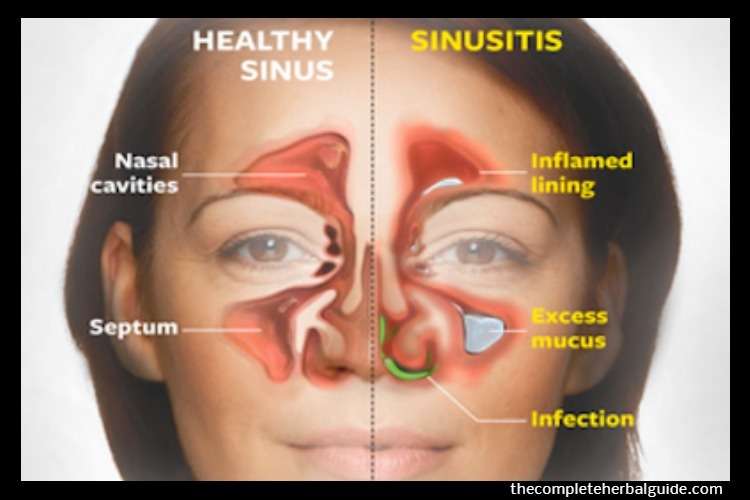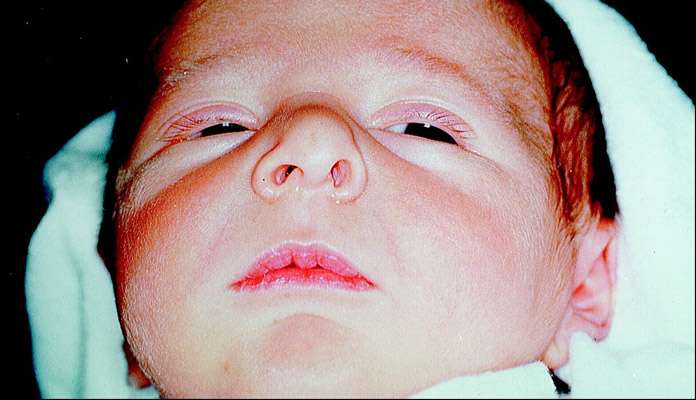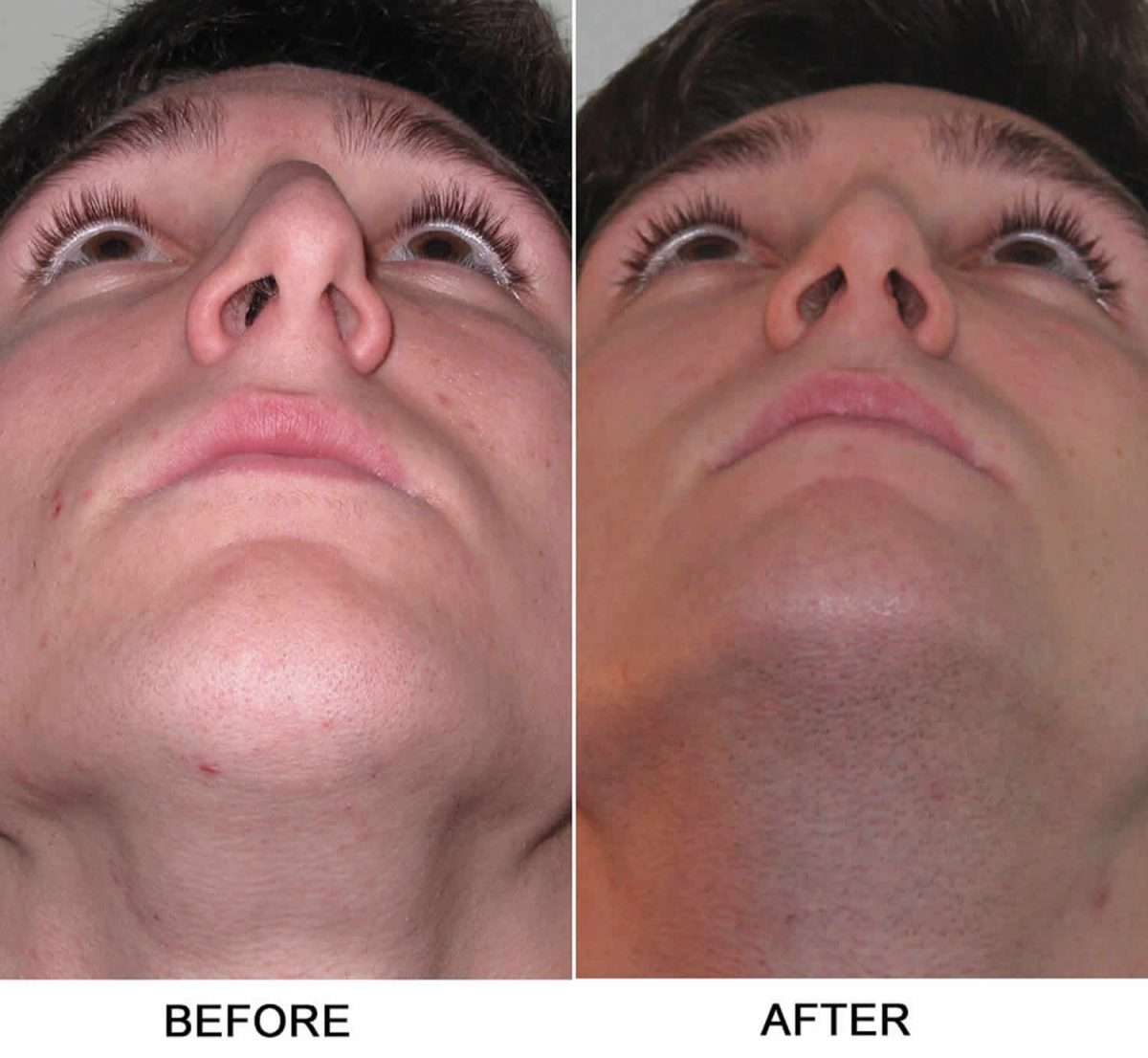Infections Of The Sinuses
Chronic sinusitis, which is characterized by inflammation and recurrent sinus infections, may be linked to a deviated septum. The sinuses are small, cavities filled with air that can be found all over the face. Because a crooked septum makes it difficult for mucus from the sinuses to drain into the nasal cavity, this can create an ideal environment for the growth of bacteria, resulting in recurrent infections and inflammation.
Snoring And Sleep Apnea
While snoring is often written off as an annoyance to loved ones who live with us, it may actually be a bigger problem than we give it credit for. Snoring disrupts sleep, which then causes daytime fatigue, which can then cause forgetfulness and difficulty concentrating. Snoring alone does not typically cause any other medical problems, but it can be quite a nuisance in our lives.
Snoring caused by septal deviation is usually because one side of the nasal passageway is thinner than the other, creating less room for air to move. That being said, anytime there is a narrowing of airways there is also a risk of sleep apnea, which is a more serious condition.
Symptoms
At a minimum, sleep apnea can cause frequent nighttime awakenings, choking or gasping during sleep, and rapid heartbeat. At its worst, sleep apnea can cause labored breathing or even stop-breathing spells. As sleep apnea worsens, symptoms may spill over into the daytime hours and may include fatigue, headaches, and irritability.
What Are The Signs And Symptoms Of A Deviated Septum
Because one of the nostrils is smaller than the other, the most common sign of a deviated septum is trouble breathing. The nasal septum is a flap of cartilage dividing the nose in half. Normally, air enters through the nostrils, goes up the nose and eventually down the trachea and into the lungs. When the septum is deviated, air flow is disrupted. It can no longer take a straight path and is more likely to encounter mechanical obstruction along the way. This causes those suffering from a deviated septum to exert more force in order to draw air in. Breathing is normally done involuntarily because the lungs require a constant influx of fresh oxygen. You might feel like you are breathing more from one side of your nose than the other, or that you are having to make a conscious effort to keep breathing. Nasal congestion is another clear sign. Other signs and symptoms might include:
While the only sure way to know if you have a deviated septum is to visit a doctor, the presence of these issues is a pretty good indicator that you might have the condition.
Read Also: How To Cure A Sinus Infection Naturally
Here Are Answers To Some Common Questions About This Nasal Condition:
What is a deviated septum?
A deviated septum occurs when your nasal septum the thin wall between your nasal passages is displaced to one or both sides. In some people, the nasal septum is off-center and can make one or both nasal passages smaller. Depending on the severity of the deviation, it can reduce airflow, causing difficulty breathing through one or both sides of your nose.
What causes a deviated septum?
Some people are born with a deviated septum. This could be due to fetal deformation prior to birth or it may occur during delivery. Sometimes the cartilage of the septum can bend and deform with age. For others, their deviated septum is the result of an injury, such as during contact sports, auto accidents or during rough play.
Could I have a deviated septum but not know it?
Yes, it’s possible to not know that you have a deviated septum or other septal deformities, especially if you are not experiencing any symptoms. Talk with your primary care provider if you are concerned about any nasal symptoms or the appearance of your nose.
What are symptoms of a deviated septum?
Signs and symptoms of septal deformities, such as a deviated septum, include:
Can deviated septums heal on their own?
No. Deviated septums will not heal over time. While this shouldn’t be a concern if you are not experiencing symptoms, it’s important to talk with your primary care provider if you are having issues. Don’t wait for symptoms resolve on their own.
Do deviated septums cause headaches?
What Is The Typical Growth Pattern Of Deviated Septum Sinus Infections

During the early stages of development of sinus infections, the cilia are lost and the mucus gets thicker. If the infection is not treated early, the lining of the sinus begins to change and the mucus gets even thicker. Subsequently, the bacteria also get trapped and start to proliferate. Once a patient reaches this stage, a surgical intervention often becomes necessary.
You May Like: Advil Cold And Sinus Active Ingredients
What Is The Outlook For People With A Deviated Septum
For most people, a deviated septum does not cause problems. If you do have difficult symptoms, a septoplasty may be the right option for you.
Most people who have surgery experience relief from symptoms. Occasionally, the septum will deviate again. In that case, healthcare providers can perform another septoplasty.
What Does Deviated Septum Mean
Theres a wall of cartilage that runs through the middle of your nose. This creates two chambers. Doctors call these chambers the nasal septum. When this wall isnt in the middle, you have a deviated septum.
Although between 70-80% of people have septal deviation, most dont know it. This is because deviated septums dont always cause symptoms. For some people, septal deviation causes trouble breathing and other issues. Most of the time, one side of the nose struggles to breathe more than the other.
Many people with septal deviation are born with the condition. Other times, it develops or gets worse after a nose injury. Less commonly, deviated septums result because of connective tissue disease, like systemic lupus or rheumatoid arthritis.
Recommended Reading: How To Relieve Migraine Sinus Pressure
It’s Time For Treatment
You don’t have to suffer from the effects of a deviated septum. Treatment can include antihistamines and decongestants, which can help clear the sinus passages and reduce discomfort. We can also prescribe a nasal steroid spray to reduce swelling.
If you have a truly severe case, a form of surgery known as a septoplasty may be indicated. Surgery is a word nobody likes hearing, but it’s effective. Some septoplasties may be performed as a quick, non-invasive outpatient procedure right here in our office. Additionally, enlarged turbinates can be reduced in our office. This process takes just a few minutes but can be very effective in opening the nasal passageways for better airflow.
Sometimes septoplasties will need to be performed in a surgery center or hospital, like any other surgery. We’ll always use the most conservative, effective treatment option.
And we’re keeping our eye on other, cutting-edge technologies. For example, a pain-free, non-invasive alternative procedure recently passed clinical trials.
Of course, headaches, breathing difficulty, nosebleeds, sinusitis, and blocked nasal passages could be caused by any number of ear, nose, or throat conditions. It’s important to get an accurate diagnosis so we can find the best way to correct the problem. This may require a nasal endoscopy or CT scan.
In most cases, the only way to stop suffering for good is to make an appointment. And you should! You deserve to breathe the way Mother Nature intended.
Disturbed Sleep / Apnea
Has anyone ever told you that you snore loudly? Snoring is often associated with obesity and sleep apnea, but the underlying cause could be breathing problems in your nose. Yes, your nose could be the real issue.
When you have a difficult time breathing through your nasal passageways, you automatically open your mouth to get the oxygen that you need. The open mouth creates a vacuum, and it causes the tissues in your throat to flop around, which makes a lot of noise.
If you hear your infant or young child snoring, then their septum should be evaluated. Sleep apnea is a whole other condition, but it often occurs with a deviated septum too. If youre waking up regularly, unable to get proper sleep from your lack of breath, then you need to see a doctor.
Read Also: How To Relieve Sinus Pressure In Your Head
Treatments For Septal Deviation
Despite the problems that can be caused by septal deviation, the good news is that there are various successful and proven treatments. Since everyones physiology is different, it is important to see a doctor who specializes in ear, nose, and throat conditions in order to identify a treatment plan designed specifically for you. Individualized treatment plans are a necessary course of action to prevent and treat problems associated with a deviated septum.
What Should I Do If I Think I Have A Deviated Septum
If youre worried about a deviated septum, schedule an appointment with a nose specialist. Dr. Brooks meets with you and reviews your symptom history. He then examines your nose to check for septal deviation.
Depending on the severity of your symptoms and the degree of deviation, Dr. Brooks may recommend different treatments. If you have minor problems, Dr. Brooks may recommend trying nasal steroid sprays, decongestants, or nasal dilators first. These can ease symptoms and provide temporary relief.
Keep in mind that these conservative treatments do not fix your septal deviation. For people with significant deviation and major symptoms, a may be needed to give you lasting relief.
A septoplasty is surgery that straightens your septum. This allows air to flow better through your nose. As a result, you breathe easier and experience fewer symptoms. Dr. Brooks has extensive experience performing successful septoplasties.
To get relief from breathing problems caused by a deviated septum, schedule a consultation by calling Brooks Plastic Surgery in Hollywood, Florida.
You Might Also Enjoy…
Read Also: Best Sinus Medicine For Allergies
Deviated Nasal Septum Causes And Symptoms
Causes of Deviated Septum
The nasal septum is the bone and cartilage that separates the nasal cavity. When the nasal septum becomes crooked or off-center the resulting condition is known as a deviated septum. In other words, it is the displacement of the nasal septum to one side. A majority of the people with this condition have breathing difficulties, nasal blockages, and nasal infections.
You may have deviated septum without knowing it as the causes and symptoms associated with a deviated septum are many. Most people with a deviated septum experience breathing difficulties and nasal congestion but these symptoms are not always associated with a deviated septum in some individuals.
Many people approach an ENT specialist when they encounter recurrent infections, cold, sinus, and nasal issues. Whatever may be the reason for approaching an ENT specialist for issues related to the nose, the most common causes of the deviated septum are the following:
Congenital: Deviated septum is a disorder present at birth. During fetal development, the nasal septum can deviate from its normal position to one side resulting in a deviated septum which may become apparent at birth.
Does A Deviated Septum Cause Snoring

For a long time, the question “Does a Deviated Septum Cause Snoring?” has been asked. There are a number of reasons a person may snore. Some common reasons may be the position that they sleep or perhaps if they have nasal congestion. However, one of the main reasons a person may snore is due to a deviated septum.
Recommended Reading: Sinus Infection How To Treat At Home
What Are Its Common Causes
The following are common causes of a deviated septum:
- A congenital condition Sometimes this condition occurs while the fetus is still developing.
- An injury A blow to the nose even one that didnt seem serious at the time can cause your septum to become deviated.
- Aging Aging can cause it to develop or worsen.
What Is A Deviated Septum And What Causes It
Have you been having trouble breathing through your nose lately? Is breathing through your mouth something that youre getting used to? If so, theres a good chance that you have a deviated septum.
A deviated septum occurs in an estimated 5-10% of the population. While complications are rare, when they occur, they can be serious. So, what is a deviated septum and what causes it?
Keep reading to learn all about deviated septum, and its
Recommended Reading: Does A Sinus Infection Require Antibiotics
Finding Deviated Septum Relief
To better understand the relationship between a deviated septum and sinusitis, its important to understand what the nasal septum is. The nasal septum is the bone and cartilage that separates your left nostril from your right. For various reasons, the nasal septum can become crooked, which increases your chance of experiencing sinus issues, as well as the likelihood that youll be seeking deviated septum relief.
How Do You Fix A Deviated Septum Without Surgery
Your How do you fix a deviated septum without surgery images are ready. How do you fix a deviated septum without surgery are a topic that is being searched for and liked by netizens today. You can Find and Download the How do you fix a deviated septum without surgery files here. Find and Download all royalty-free vectors.
How do you fix a deviated septum without surgery. If youre having nasal problems, trouble sleeping, are prone to sinus infections and having trouble with smell and taste, you could have a deviated septum. We cover all of those methods below. Septoplasty is the best option for permanently correcting this functional issue and restoring breathing back to normalpermanently. If you get your deviated septum diagnosed and its symptoms can be addressed without surgery, you could opt for one of the following methods:
Read Also: How To Get Over Sinus Infection Fast
What Are The Consequences Of A Deviated Septum
The major effects of deviated septum include severe nasal congestions, feeling of pressure in the nose, and breathing difficulties during sleep.
A deviated nasal septumoften leads to nasal blockages. People who have this condition breathe through the mouth during sleep. Mouth breathing is uncomfortable breathing When this happens, the mouth may become dry. It is quite disturbing as well. People with nasal blockages do not sleep properly at night because the nasal canal blocks normal airflow through the nose. When this condition persists for long, it may lead to oral health issues, dental problems, and obstructive sleep apnea.
What Is A Deviated Septum
The septum is the wall which separates the nasal cavity into two chambers: the nostrils. The wall is comprised of bone and cartilage, and the delicate structure can be easily damaged.
A deviated septum is the misalignment of the separating wall between the nostrils. Ideally, the septum is at the midline of the nose, with two nostrils of equal size, allowing sufficient airflow into the lungs through each nostril.
Recommended Reading: Can A Tooth Infection Cause A Sinus Infection
How Does A Deviated Septum Affect My Health
It depends on the severity of your deviated septum and other factors, like whether you have seasonal allergies. People with minor septal deviation may not have any symptoms, or they may have minor symptoms.
The more severe your septal deviation, the higher the chances of having troublesome symptoms in your breathing and other areas of your life. Heres a look at the top ways septal deviation can affect your health:
After Surgery And Recovery

Depending on your work, Dr. Mourad typically recommends taking a minimum of 3 days off before returning to work. He also discourages his patients from any heavy lifting. If you wear glasses, you may require some alterations if applicable. Dr. Mourad will provide you with pain medications, ointments, nasal sprays, all to help maximize your results. Dr. Mourad will then see you in visitations two weeks later, and then one month after that. Dr. Mourad enjoys the continued visitation of his patients and will see them in follow up for many years thereafter.
Read Also: Does Ibuprofen Help With Sinus Headache
Is My Deviated Septum Causing My Sinus Infections
A deviated septum is an extremely common condition that you may not even know you have. Your nasal septum is a wall of bone and cartilage that gives shape and support to your nose while dividing your nasal cavity in half. In some cases, however, its off center or crooked. This can make breathing difficult and cause congestion to build up, particularly in just one nostril. Your nose may feel stuffy, even when you dont have a cold. In more severe cases, it can make the nose appear crooked.
Some people are born with this condition, and others may develop it from an injury to the nose. The trauma may have been a long time ago and may have been barely noticed at the time.
In this blog, the sinus specialists at DFW Sinus Select will explain the symptoms of a deviated septum.
How Does A Deviated Septum Cause Snoring
Deviated septum snoring is caused when the nose tissue is pushed to one side, thus creating an uneven flow of air through the nostrils. While the cause for a deviated septum may be the result of a broken nose, many people have a deviated septum because of genetics that influences the makeup of their nose. Having a deviated septum does not necessarily mean that you will snore. In fact, nearly 80% of people have an uneven balance of tissue within their noses. However, if you snore regularly, a deviated septum may be the reason.
Also Check: Will Zpack Treat Sinus Infection